PHP Monitoring
Centralize your PHP performance management with comprehensive monitoring. Access metrics, traces, and logs all in one platform to optimize application health and efficiency.
Sign Up for Free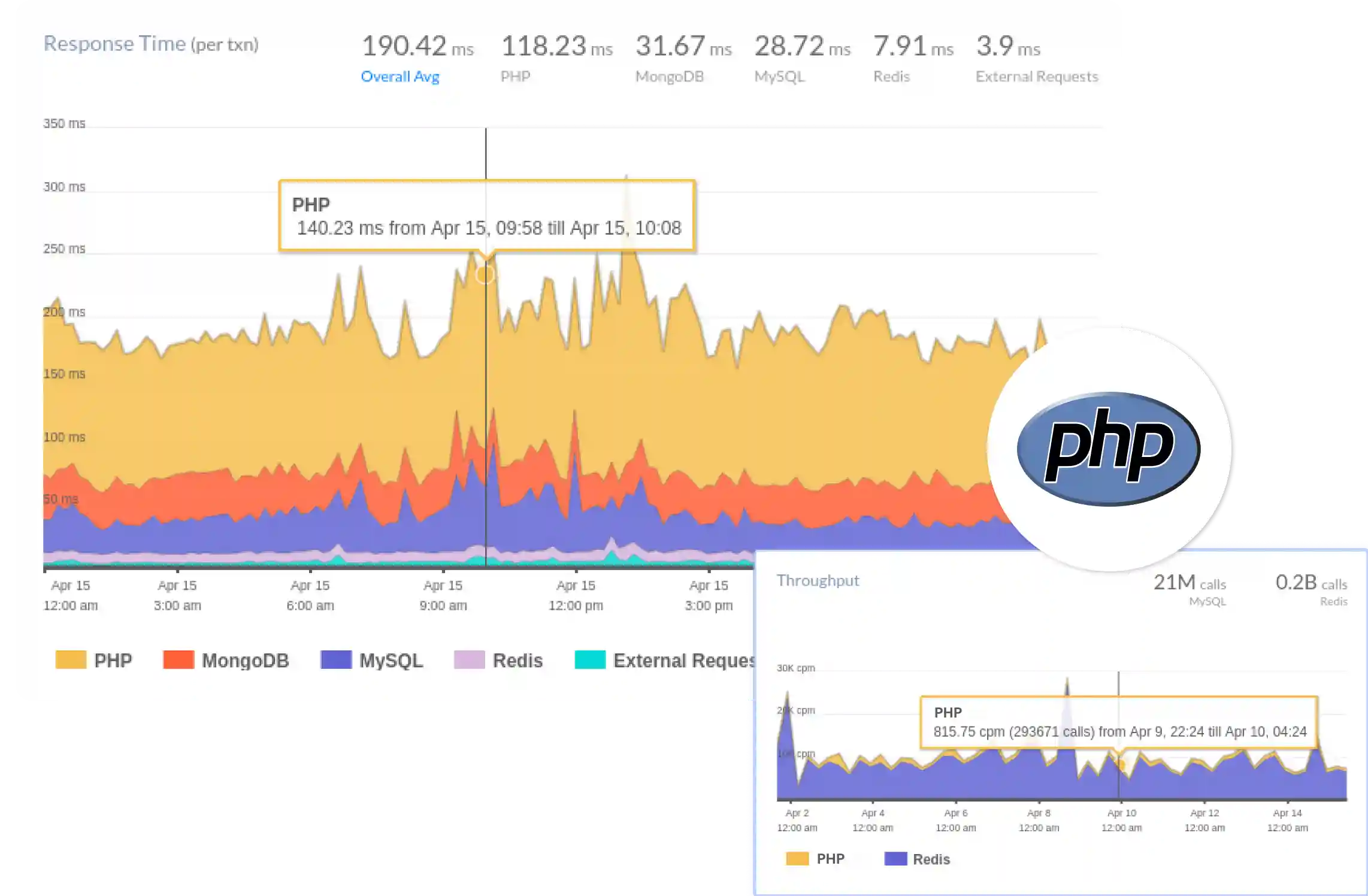
Centralize your PHP performance management with comprehensive monitoring. Access metrics, traces, and logs all in one platform to optimize application health and efficiency.
Sign Up for Free
Monitor these key metrics to ensure your PHP APM performs efficiently and securely, enabling you to detect potential issues before they impact your applications and server performance.
Measures the time taken for PHP scripts to execute and send a response to the client. High response times can indicate performance bottlenecks or inefficient code execution.
Tracks the percentage of errors occurring in PHP applications, such as exceptions, warnings, and fatal errors. Monitoring this helps identify issues affecting application stability and user experience.
Monitors the number of requests handled by the PHP application per second, providing insights into traffic patterns and the application's ability to handle load.
Identifies functions that take longer than expected to execute, allowing developers to optimize code and improve overall application performance.
Monitors the performance of external service calls made by PHP applications, helping to identify latency issues and optimize dependencies that may impact application responsiveness.
Captures the execution time and frequency of database queries made by PHP scripts, helping identify slow or redundant queries that can degrade application performance.
PHP APM monitoring is essential for maximizing application performance by delivering critical insights into request handling, resource consumption, and error tracking, enabling your organization to proactively address issues and enhance user satisfaction.
PHP’s flexibility makes it ideal for building dynamic and scalable web applications, ensuring smooth handling of increasing user demands. Its adaptability lets you easily manage large-scale applications without compromising performance.
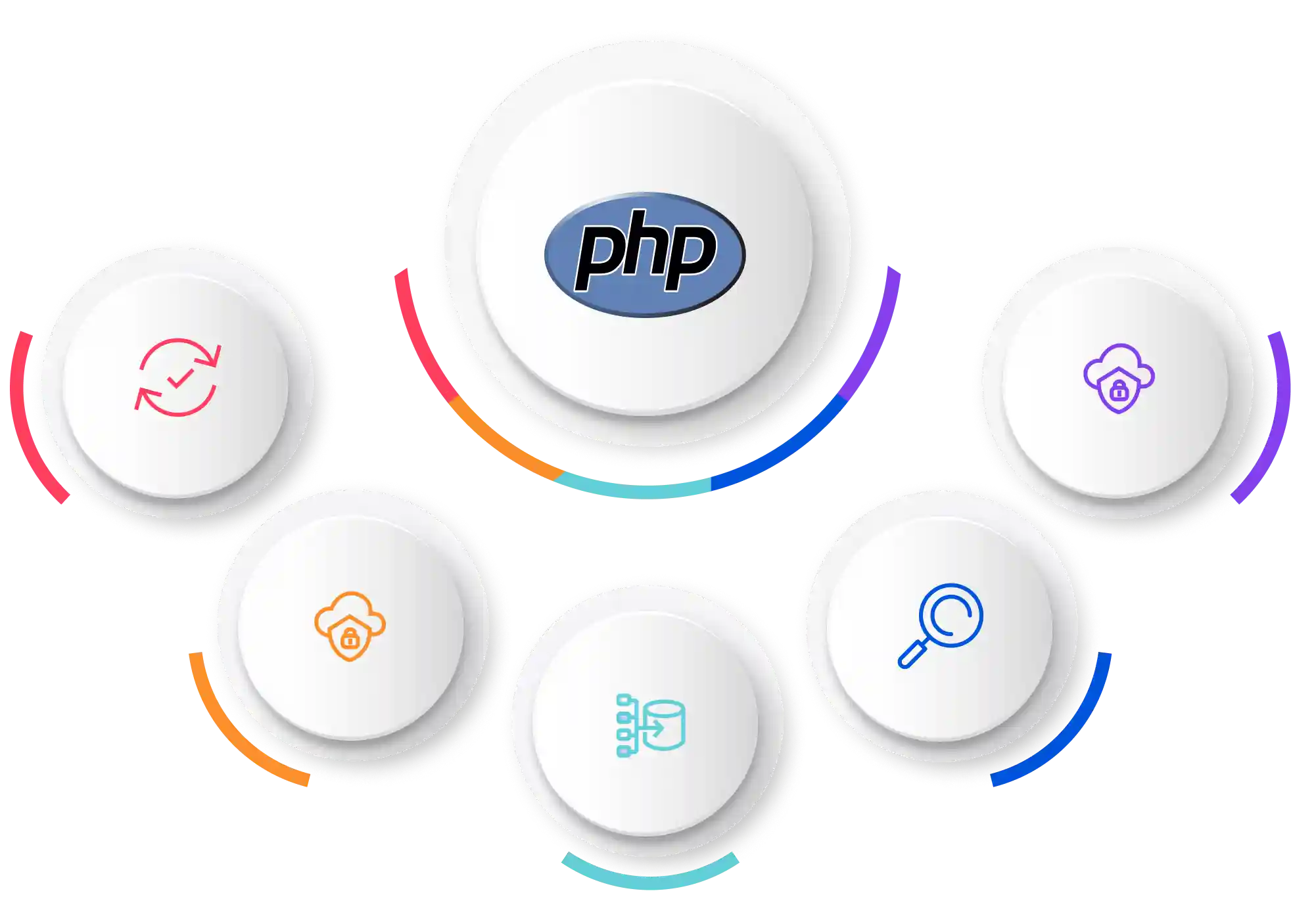
PHP integrates effortlessly with databases like MySQL, PostgreSQL, and NoSQL, along with frameworks such as Laravel and Symfony. This versatility allows developers to connect to different technology stacks without hassle, providing robust backend support.
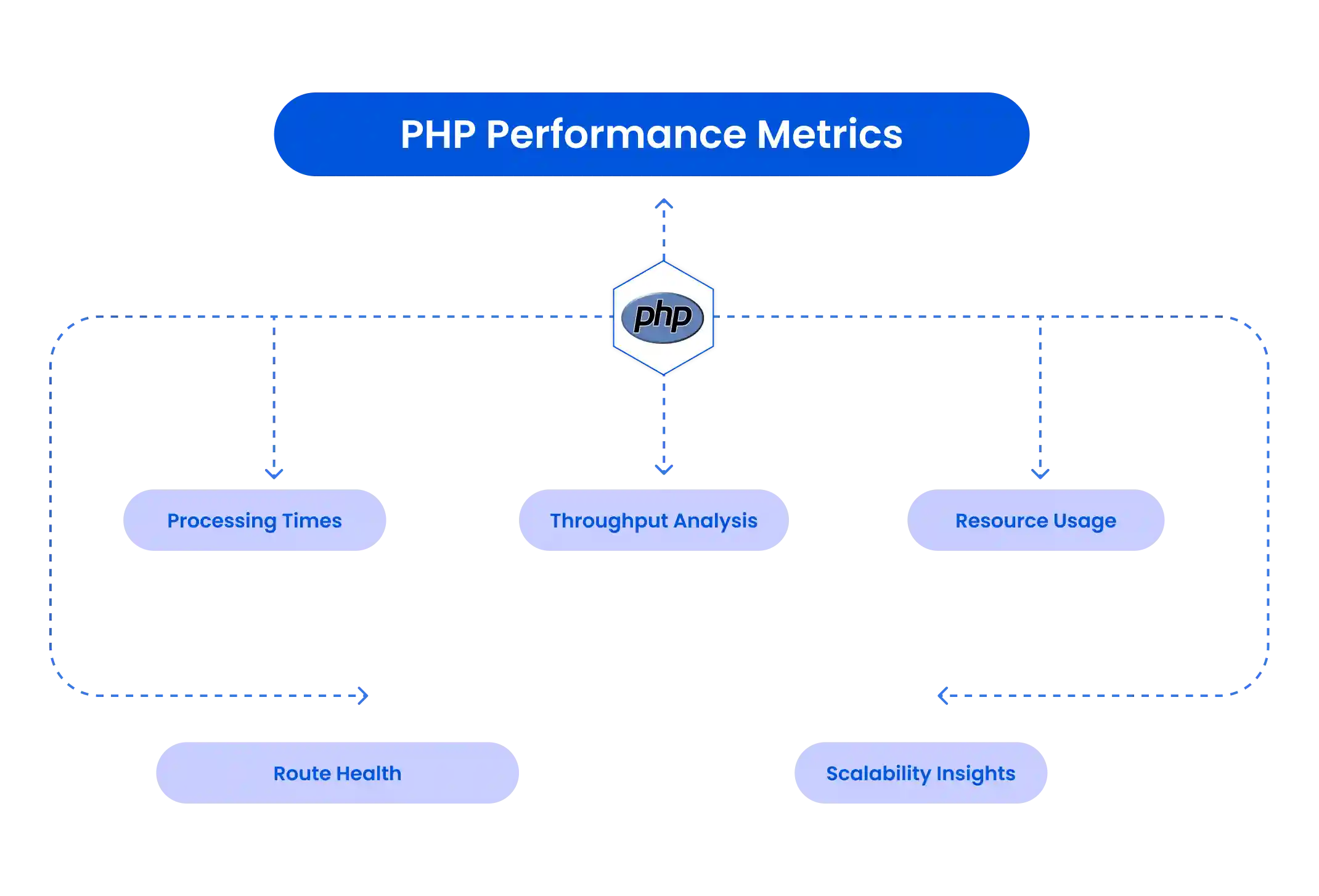
Designed for speed, PHP ensures high-performance execution with minimal latency, which is crucial for delivering an optimal user experience. Monitoring PHP alerts helps you quickly identify performance bottlenecks and maintain fast-loading applications.
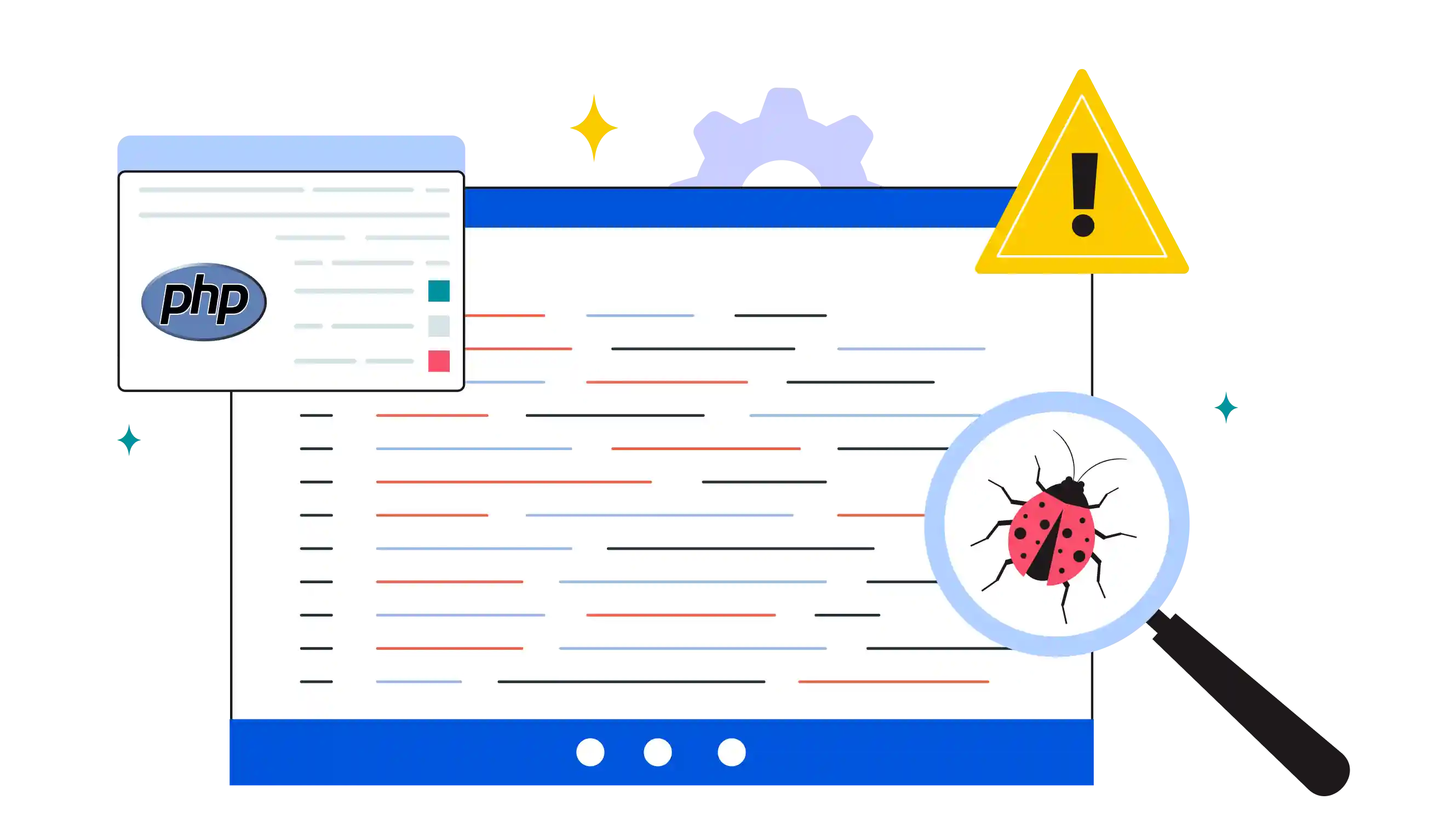
PHP is open-source and backed by a large community, making development and maintenance cost-effective. It enables organizations to build and manage applications with lower costs and fewer resources.
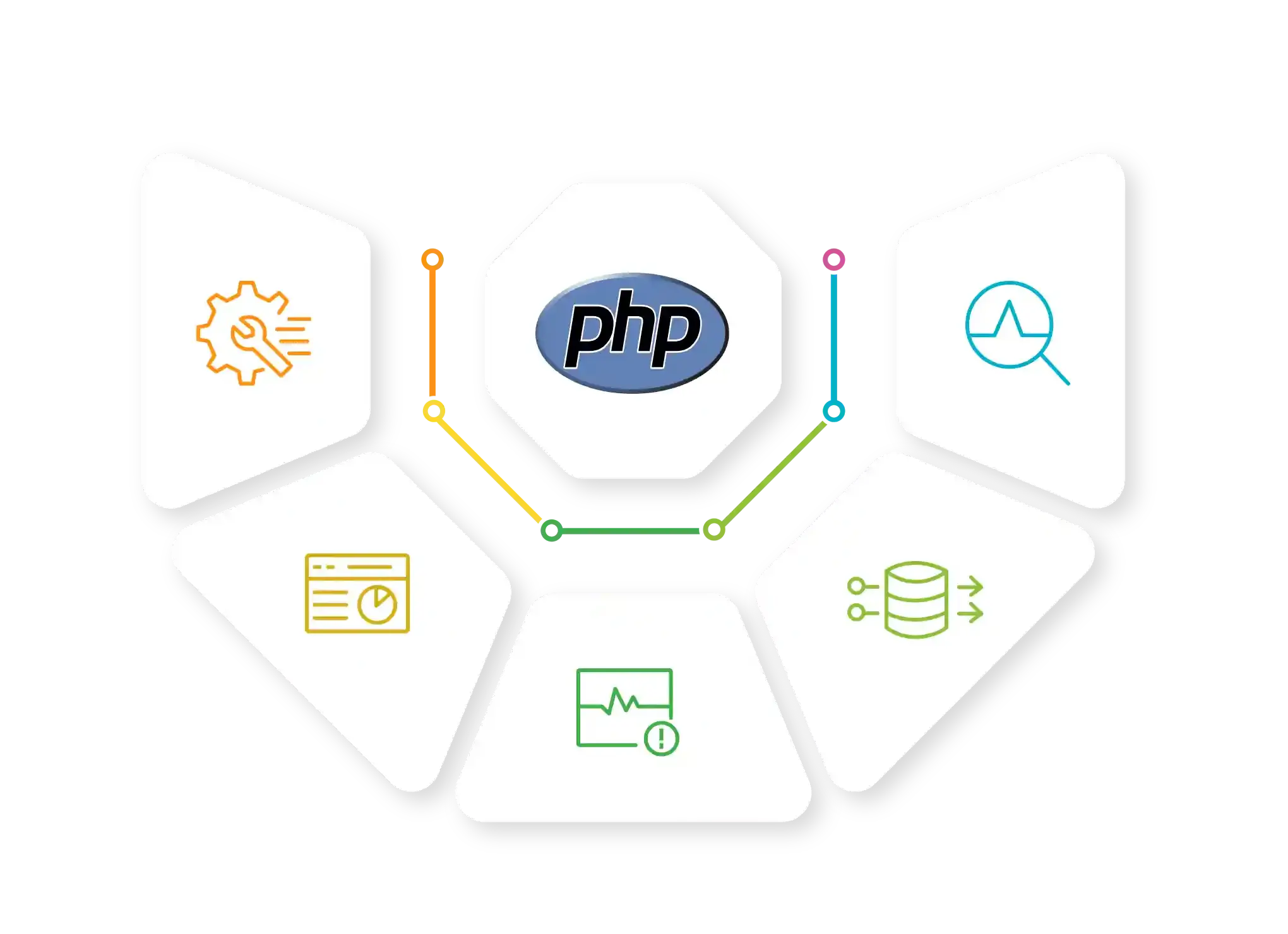
PHP monitoring involves tracking the performance, resource usage, and errors within your PHP applications. It provides insights into how PHP scripts are executing, helping you identify and resolve performance bottlenecks, errors, and other issues that could impact your application’s stability.
Yes, PHP APM monitoring can track database query performance, showing the execution time and frequency of each query. This allows you to identify slow or inefficient queries that could be causing performance issues.
You can set up PHP alerts for slow response times, high error rates, excessive memory usage, or CPU spikes. These alerts allow you to proactively address performance issues before they impact users.
Absolutely! Atatus integrates seamlessly with PHP frameworks like Laravel and Symfony, providing deep insights into framework-specific performance metrics, database queries, and error tracking.
Atatus can detect various PHP errors, such as warnings, notices, exceptions, and fatal errors. It provides detailed insights into each error, including stack traces and affected URLs, making debugging faster and more efficient.
Avail Atatus features for 14 days free-trial. No credit card required. Instant set-up.